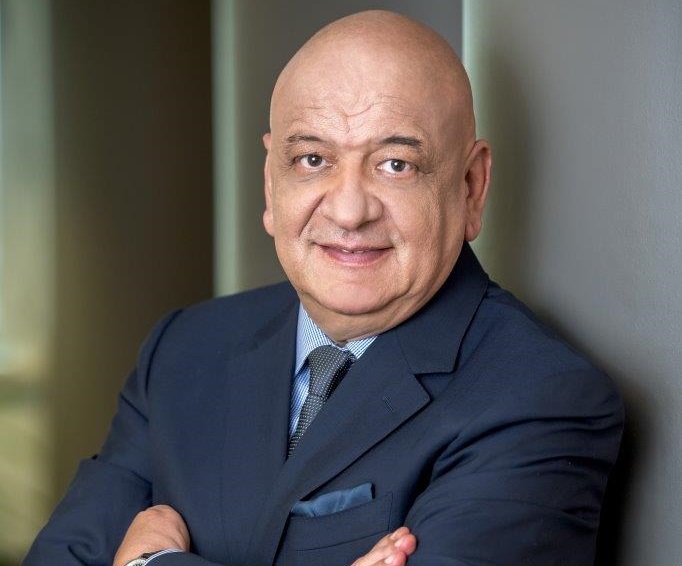Interview with Anthony Radev, President of Corvinus about model-changing, foreign students and new campus

We interviewed the President of Corvinus University, Anthony Radev:
Daily News Hungary (DNH): Thank you for accepting the invitation to be interviewed. You are the president of Corvinus University, but there is also a foundation run by a president and then there is the rector of the university. Could you give us a little insight into each person’s individual role?
Anthony Radev: The foundation as operator is responsible for the institutional and financial functioning of the University. The Charter issues the Charter Document of the University, adopts its Organisational and Operational Regulations, Institutional Development Plan, budget and financial report, as well as makes proposals to the President of the Republic regarding the Rector of the University and appoints the President and Chancellor of the University. The operator shall perform its duties related to the functioning of the University in cooperation with the University and its citizens, considering in particular the Senate and the other bodies of the University.
The University is led by the Presidential Board of the Board of Trustees, and it is the decision-preparing, opinion-forming, strategy-making body of the University. It consists of three main positions: the Rector, the President and the Chancellor. The rector is responsible for the educational and scientific research portfolio, leads the academic work at the highest level. The Chancellor is responsible for the university’s financial stability, procurement and infrastructure. My position, the President of the University is responsible for the strategic management, the leading the institutional work organization of the University, and such strategic units as HR, international relations, accreditations, law and communication.
DNH: Corvinus was the first model-changing university in Hungary. How would you assess the change?
Anthony Radev: For Corvinus as the pioneer in model-changing, it is a great success – the first cycle of renewal is completed. We have the dominant market position, and we have massive results in internationalisation of education and international visibility. We have significantly increased the number of our English programs. The number of applicants for English language courses has increased by almost 50 percent. We tripled the number of research publications in the most prestigious scholarly journals. We were the first in Hungary to introduce the academic career model: with a predictable career- and quality-focused performance.
As we gained a strong, reliable budget and self-sustainability, we are building on operational excellence and we spend an average of HUF 2-3 billion per year on investments and improvements, i. e. a unique education and innovation centre in the Ménesi Street Campus. We have increased the base salary by an average of more than 70 percent, almost tripled the non-wage benefits and introduced a performance-related annual bonus. This year the average salary growth is an impressive 15-17%.
We have established the Ethics, Responsibility and Sustainability Hub (ERS Hub) to support the alignment of the University’s ethics, social responsibility and sustainability initiatives and have evolved sustainability a priority in our investments and operations. We have digitized student administration, so most processes can be initiated online. We have launched the My Corvinus app, which was 2021’s App of the Year.
We do not lean back seeing our results, we continue looking for the best solutions and best practices in each area that is relevant for Corvinus.
DNH: What international accreditations demonstrate best Corvinus’ outstanding achievements? How do you score in international university rankings?
Anthony Radev: The Corvinus University of Budapest is the only university in Hungary in the field of economic sciences that has two international accreditations at institutional level: AMBA, and AACSB. We gained the AACSB accreditation (Association for Advance Collegiate Schools of Business) in 2022, which may place Corvinus among the top 900 business schools in the world. The AMBA reflects the quality of our MBA programs as it is the international accreditation of the Association of the MBA programs. In addition, we obtained several international accreditations for programs: EFMD Accredited, BSIS Label, EAPAA, the newest one is the ACCA which is a prestigious professional recognition of our MA accounting.
DNH: Why do prospective students choose Corvinus? What differentiates Corvinus from other universities and in what fields does it stand out particularly?
Anthony Radev: In a nutshell, Corvinus is Hungary’s most eminent university in the fields of economic and social science trainings. Our medium-term objective is to become one of the best institutions of higher education in Central Europe, not only within the country. We prefer quality over quantity, we offer international professional environment with internationally recognised teachers and a vivid social student life, i. e. we have the oldest student organization founded more than 50 years ago, the Studium Generale where the members voluntarily prepare several thousand high school students to the admission exams.
And of course, we know, money talks: a Corvinus student with a degree in economics can expect to earn a total net salary of HUF 340 million over a full career path, which is HUF 110 million more than the national average for graduates in the same field. The source of the monetary advantage lies not only in the knowledge acquired, but also in the skills and competences that our students acquire here. According to our recently gained BSIS label, The financial impact of the activity of Corvinus University is over HUF 170 billion per year. No other Hungarian university in economic fields undertook such an examination. The label also pointed out that the majority of senior managers at large companies listed on the Hungarian stock exchange are the graduates of this University, so the Corvinus offers excellent career perspectives.
DNH: What further developments does Corvinus aim to pursue in the future? Which are the areas that need improvement in order to reach an even higher international rating?
Anthony Radev: As I mentioned before, our medium-term objective is to become one of the leading institutions of higher education in Central Europe, not only within the country. We want to open the doors even wider to international students and teachers and integrate them with the Hungarian community. We pursue excellence, both in teaching and researching, so we expect to grow our potential in scientific publications, and we want to improve our teacher-student ratio in order to focus better on the development of our students.
We aim to be more transparent and operate in a more sustainable way, and permanently continue to develop ourselves. In these months we are preparing the strategy for the next three years, and we want to bottom-up channel all the valuable initiatives.
DNH: Can you share some details about the upcoming new campus?
Anthony Radev: As part of the complex renewal of Corvinus University of Budapest – digital, infrastructural and educational – the institution will be equipped with a technology-intensive, inspiringly future-oriented and sustainability-oriented building complex.
Between 600 and 700 students will be able to work on the Campus at the same time, with all the educational and social spaces dedicated to creative collaboration. The building will house the University’s Entrepreneurship Incubation Programme and the Data Space, home to innovative data science projects.

There will be 3100 m2 for education, 2350 m2 for sports, dormitory places for 180 students, and a huge park in 11.000 m2. The renewable building complex will also meet Leed Gold’s stringent sustainability certification criteria, as well as AA+, the highest energy efficiency rating, for the first time in a higher education investment in Hungary. The Campus will have an energy system unique in Hungary, using the latest thermal insulation technologies and providing energy supply through solar panels and ground-source solar probes.
DNH: How many foreign students are currently enrolled at Corvinus? What is the number of foreign lecturers? I suppose that the Stipendium Hungaricum and Erasmus are decisive in terms of the number of foreign students.
Anthony Radev: Currently, we have 11.000 students and 20% of them are from abroad. Ten years ago, the ratio was only 10%. And yes, we are a popular destination for students both who gained the Stipendium Hungaricum and the ones who participate in the Erasmus program, several hundred young foreign people come to our university every year. Corvinus is among the Hungarian universities that have made the most of the Erasmus+ program, with around 500 students per academic year.
DNH: Moving on to another subject… You are known to hold several major positions in companies or associations. Can you share us some details about these responsibilities? How do you juggle the heavy workload?
Anthony Radev: My main task is to be the President of Corvinus. The other responsibilities do not require a full-time job, and these few hours per week can be inserted in my schedule. I have excellent collegues who are experts in their profession, which makes the work much easier for me.
DNH: I know that you have three nationalities. Can you tell us what these are?
Anthony Radev: I was born in Bulgaria, studied and moved to Hungary, later on professionally settled in Germany.
DNH: This question concerns Anthony Radev, a private individual. Can you tell us a bit about your family background? How do you spend your free time? Do you have any favourite pastime or something that you are really passionate about?
Anthony Radev: I was born into a working family. Usually with the 3 F – Family, friends and football. I had a great childhood, fantastic young years, very satisfying midlife.
DNH: I am sure you have travelled a lot before. Which three destinations left the biggest impact on you and why?
Anthony Radev: I’ve been to more than 70 countries in the world, I do not regret any one of those, to do a favorite list would be unfair, because I respect them all.
DNH: Let’s not leave out Hungarian gastronomy either. If you could order anything right now, what would be your instant pick for starter, main course and dessert?
Anthony Radev: Jókai bean soup (Jókai bableves), stuffed cabbage (töltött káposzta), creamy dumplings (túrógombóc).

